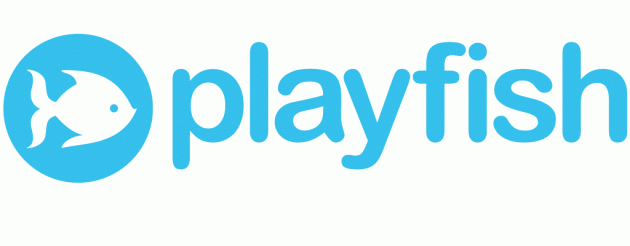 When I wrote my BusinessWeek column on Zynga a while back, every venture capitalist in the Valley told me that Playdom was the company’s biggest competitor.
When I wrote my BusinessWeek column on Zynga a while back, every venture capitalist in the Valley told me that Playdom was the company’s biggest competitor.
After all, it competes game-to-game, with similar mob-style and poker games, and was said to be doing the same revenues as Zynga with much higher profitability. (As my column pointed out, Zynga’s revenues are more like double Playdom’s—and since I’ve heard the discrepancy is even greater.)
As you’d expect Zynga’s CEO Mark Pincus pooh-poohed Playdom as any sort of threat. But tellingly, he said the company he was worried about was UK-based Playfish. So, while I was across the pond, I decided to see what the fuss was about and sat down with Playfish’s founder and CEO Kristian Segerstrale. I came away convinced this was one of the hottest companies to watch in the UK. Here are five reasons why.
1. Not “The UK Zynga.” Playfish is very much running its own race in this market, and this may be a case where distance from the Valley is actually healthy. It doesn’t try to compete on specific games with Playdom, SGN, and Zynga. For instance, it doesn’t have a mob game, the most popular genre right now, and it doesn’t have a poker game, Zynga’s top earner. “That’s such short term thinking,” Segerstrale said. “Something is wrong if your route to success is copying competitors’ games.”
2. Platform Development Doesn’t Have to Mean Half-Ass Development. Playfish is not about building a game in a week or so and throwing it up on Facebook. Playfish spends six months to a year designing a game, and they’ve only produced seven of them. While everyone else talks up how quickly and cheaply you can build a game on social networks, Playfish still employs the same artistic discipline of a console game with a Wii-like look and feel. The plus with platforms like Facebook and the iPhone isn’t speed to market for Playfish, it’s easier distribution and greater social engagement.
3. Traction. The painstaking design process appears to be a hit. Every one of Playfish’s games has been a top ten hit on Facebook. Across all platforms, those seven games have yielded 100 million installs and 30 million monthly uniques, says Segerstrale. Playfish pays “practically nothing” for customer acquisition and makes money through virtual goods, ads and premium versions of games.
Playfish is profitable and hasn’t spent a dime of its recent $17 million funding round. That’s gotta be some top line given Playfish has 200 employees across several offices. In fact, TechCrunch Europe’s Mike Butcher speculated that Playfish could be the $1 million-dollar-a-month Facebook app maker, back in September 2008. It certainly puts the company in an enviable position given the paucity of venture funds in the UK.
4. Proximity to the Valley Insiders via Investors. While Playfish enjoys distance from the one-ups-man-ship or developer poaching of SGN, Playdom and Zynga, it’s connected into the Valley where it counts. One of its main investors is Accel—also one of the main backers of Facebook. Yes, that matters. (See Sequoia Capital-backed Google’s purchase of Sequoia Capital-backed YouTube.)
5. Segerstrale Knows Games. This is the fuzziest one, but also probably the most important. As a CEO, Segerstrale comes to this industry from a different point of view than Pincus. Pincus has said he was never really much of a gamer—Segerstrale on the other hand has loved games since he was three years old playing Pong with his older brother. He always got a visceral rush from playing, especially with other people. So he’s spent much of his career working towards two goals: Decoding what makes a game “fun” and deconstructing the concept of a “gamer” so games are just something everyone plays.
His first attempt was at mobile, thinking that with phones in every pocket, everyone would essentially have a game console. Indeed, the company he cofounded, Glu Mobile, went on to a successful IPO. But gaming was still a niche activity on phones. There were too many barriers set up by the telcos and it wasn’t as easy for people to find and download games. Facebook turned out to be a much greater platform for this kind of democratization of gaming because users could market games to one another.
Segerstrale’s macro theory is that we’re in the first shift of a move from physical games and goods to digital ones, and from games as a product to games as a service. It’s a theory that seems right-on to me. For one thing, we already saw it with the transition from enterprise software to software as a service. For another, sales of console games are down 20% year-over-year according to NPD, while comScore says social gaming is up 20% year-over-year. It’s nice to see a CEO who can articulate not only a product vision, but a clear industry vision.
All the positives above aside, I’m still not convinced that Segerstrale will succeed in his mission to democratize games. I still mainly use Facebook as a way to connect with friends, not to build virtual restaurants and I don’t necessarily see that changing. In fact, Facebook has so de-emphasized apps in its new all-feed iteration, I spent nearly an hour trying to find a listing of games, before someone finally told me it was on the throw-away bottom bar of the profile page. And by emphasizing the social stickiness of a game, there’s a chicken-and-egg risk that the games are boring for people who don’t have enough friends already playing.
But these are execution risks and every promising startup has them. When it comes to business model, financing, vision and product, Playfish is certainly a formidable competitor to Zynga. With hundreds of millions in real dollars already swarming around social gaming, this will be fun space to watch.